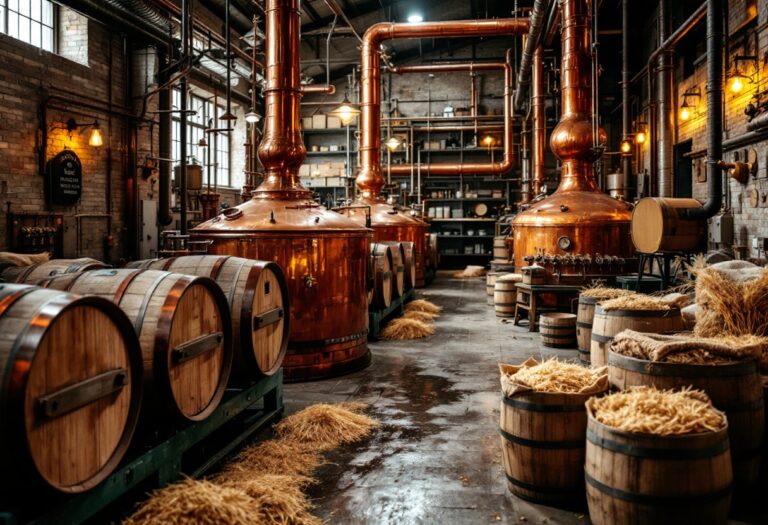New tariffs could reshape the competitive landscape for whisky producers.

Topics covered
Scotch whisky distillers are currently navigating a challenging landscape as they grapple with the implications of a new 10% tariff imposed on their exports to the United States. This move, part of former President Donald Trump’s broader economic strategy, aims to bolster the US economy and protect American jobs.
However, the repercussions are being felt acutely in Scotland, where whisky makers are among the hardest hit by these trade restrictions.
Competitive edge over Irish whiskey
Interestingly, while the 10% tariff poses significant challenges, it may also provide Scotch whisky with a competitive advantage over Irish whiskey, which now faces a steeper 20% tariff.
Alasdair Day, from the Hebridean Isle of Raasay Distillery, expressed disappointment over the situation, particularly for newer distilleries that are still establishing their presence in the American market. He noted, “For businesses like ours, it’s a turbulent time.” Despite the potential for increased prices, Day believes that Scotch could benefit from the higher tariffs imposed on its Irish counterpart.
Market reactions and economic implications
The introduction of these tariffs has sent shockwaves through global markets, with many distillers expressing concern over the long-term effects. Day remarked, “There are so many knock-on effects that we won’t fully understand until a few months down the line.” The aim of the tariff is to make American bourbon and single malt more appealing to US consumers, a strategy that has been seen before during Trump’s previous term when a 25% tariff was levied on Scotch whisky. “It really hurt, and it slowed down our growth in the States,” he added, highlighting the ongoing struggles faced by the industry.
Challenges faced by distillers
Anthony Wills, who operates Kilchoman distillery on the Isle of Islay, described the new tariff as a “massive blow” for business, especially following a challenging year marked by various economic pressures. He pointed out that the combination of rising National Insurance, increased duty in the UK, and higher minimum wage creates a perfect storm for distillers. “The economic headwinds we’ve all been experiencing make it very challenging for every industry, but for Scotch whisky, as a major exporter, it’s huge,” Wills stated.
As distillers reflect on the current landscape, many are hopeful for a resolution that could lead to the rescinding of these tariffs. Annabel Thomas, founder of Nc’nean Distillery, emphasized the need for industry bodies and the UK government to collaborate in reducing tariffs or at least establishing a timeline for their removal. “I don’t hold out much hope of them achieving that but we will see,” she said, underscoring the uncertainty that looms over the industry.
In summary, while the new tariffs present significant challenges for Scotch whisky distillers, they may also reshape the competitive dynamics in the spirits market. As the industry adapts to these changes, the focus remains on navigating the complexities of international trade and finding ways to sustain growth in a turbulent economic environment.




